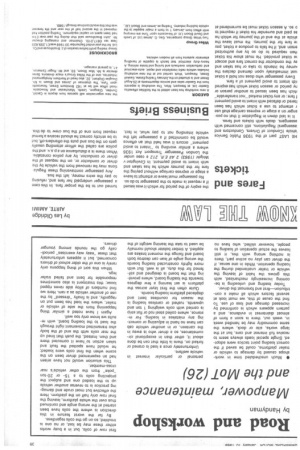Fares and tickets
Page 41

If you've noticed an error in this article please click here to report it so we can fix it.
HE LAST part of the 1936 Public Service rehicle (Conduct of Drivers. Conductors and assengers) Regulations, still concerned with assengers. deals with tickets and fares.
It is laid down in Regulation II that no pasanger on a stage or express carriage shall use r attempt to use a ticket which has been ltered or defaced with intent to avoid payment I fare; or any ticket marked "not transferable" rhich has been issued to another person or ny period or season ticket which has expired Pith intent to avoid payment of a fare.
Every passenger who does not hold a ticket lust immediately upon demand declare the Purney he intends to take or has taken and ay the conductor the correct fare and accept te ticket provided. He must show his ticket then required to do so by any authorized arson and, if he fails to produce a ticket, pay ie fare for the journey. He must leave the ahicle at the end of the journey for which he as paid and surrender his ticket if required to D so. A season ticket must be surrendered at the expiry of the period for which it was issued if a request is made to the passenger to do so.
No passenger must leave or attempt to leave a stage or express carriage without paying the fare for the journey which he has taken and with intent to avoid payment. In Covington v Wright (1963) 2 All ER, 212 a case under the London Passenger Transport Act 1936 where a similar wording to "intent to avoid payment" occurs it was held that an offence would be committed if a passenger left the vehicle intending not to pay what, in fact, turned out to be the proper fare. In this case a passenger underpaid her fare and, refusing to pay the extra money, left the bus.
Any passenger contravening these Regulations may be removed from the vehicle by the driver or conductor or, on the request of the driver or conductor, by any police constable. When there is a disturbance on a p.s.v. and the police are called the officer attending usually gets on the bus and puts the offenders off, but to be strictly correct he should receive a formal request from one of the bus crew to do this.








































































































